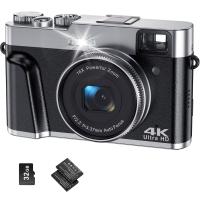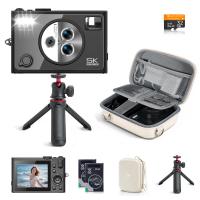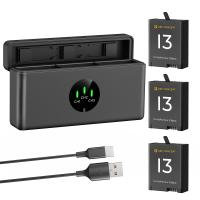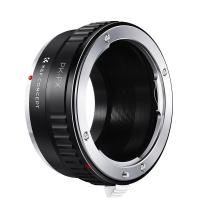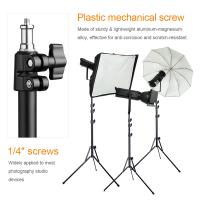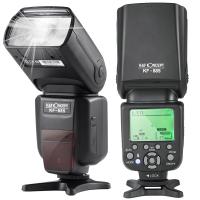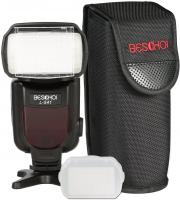How To Store Camera Batteries?
Properly storing your camera batteries is essential to maintaining their longevity, ensuring they perform optimally, and protecting your valuable equipment. Camera batteries, whether lithium-ion or nickel-metal hydride (NiMH), can degrade over time due to improper handling, environmental factors, or neglect. As both a photography enthusiast and a responsible caretaker of your gear, understanding the dos and don’ts of battery storage should be a priority. In this article, I’ll explore practical steps to store your camera batteries effectively, including detailed tips that address specific scenarios and the reasons behind them.
---
1. Understand Your Camera Battery Type

Before discussing storage practices, it’s helpful to identify the type of battery you’re dealing with. Most modern cameras use lithium-ion batteries, while some older models may still rely on nickel-metal hydride (NiMH) batteries. Each type comes with unique care requirements.
- Lithium-ion batteries: Lightweight and commonly used in most modern cameras. These batteries offer high energy density and carry less risk of memory effect (loss of capacity from incomplete discharges). However, they are sensitive to extreme temperatures.
- NiMH batteries: Often used in AA or AAA rechargeable batteries. They are slightly more tolerant of temperature fluctuations but can degrade faster if improperly maintained.
Let’s learn how to store both of these battery types for optimal safety and performance.
---
2. Charge Your Batteries to the Right Level

One of the most common mistakes photographers make is storing their batteries fully charged or fully depleted. Both scenarios can lead to reduced lifespan. For long-term storage, follow these guidelines:
- Lithium-ion batteries: Store lithium-ion batteries at about 40-60% charge. This is the optimal state of charge to minimize capacity loss caused by stress on the battery’s cells. Batteries stored at 100% charge or completely drained are more likely to experience chemical degradation.
- NiMH batteries: While these batteries are more robust in terms of energy depletion, they should ideally be stored at around 50% charge to avoid over-discharge or pressure from excessive energy.
If you’re preparing for short-term storage (a few days or weeks), it’s okay to leave them fully charged. But for months or years, always aim for the mid-level charge.
---
3. Store in a Cool, Dry Place

Temperature and humidity are critical factors for proper battery storage. Both can significantly impact a battery’s performance and lifespan.
- Avoid extreme temperatures: Keep your batteries away from heat sources like direct sunlight, car interiors during summer, or radiators. The ideal storage temperature for lithium-ion batteries is between 20°C to 25°C (68°F to 77°F). Extremely high temperatures can cause the batteries to overheat, swell, or leak, while cold temperatures can slow chemical reactions inside the battery, reducing its performance temporarily.
- Control humidity: Moisture can corrode battery contacts and damage the integrity of the battery body. Always store camera batteries in a dry location with low humidity. Use silica gel packs or desiccants to absorb moisture if you’re in a humid environment.
- Avoid freezing temperatures: While storing batteries in the refrigerator is a myth with no benefit for modern lithium-ion batteries, it’s crucial to avoid freezing them, as this can lead to irreversible damage.
---
4. Use a Battery Case or Cover
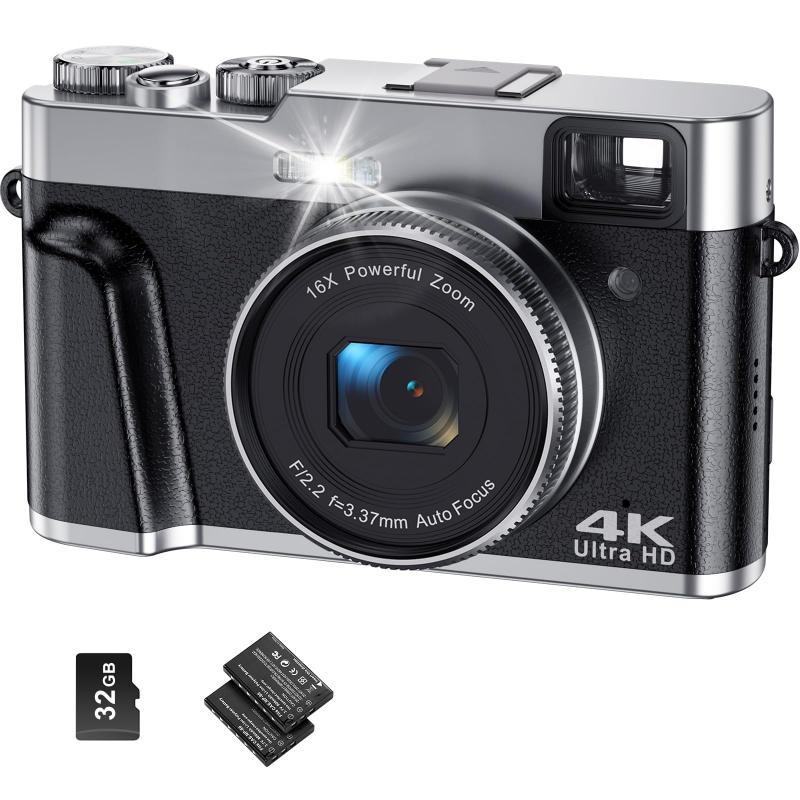
Battery contacts are sensitive and can easily be damaged if left exposed to dirt, moisture, or metallic objects. Always use a protective case or battery cover when storing your batteries, especially for travel or when the batteries are not in use for extended periods.
- Prevent short circuits: Batteries with exposed contacts can short-circuit if they come into contact with metallic objects, like keys or coins. Placing batteries in a snug battery case can prevent this risk.
- Avoid dirt or dust: Grime buildup can interfere with a battery’s ability to make proper contact with your camera, reducing efficiency. Storing batteries in a dust-free cover or container minimizes these risks.
---
5. Label and Rotate Your Batteries
If you own multiple camera batteries, keeping track of their usage and storage status can help you rotate them wisely and extend their usability.
- Label the batteries: Use a label or marker to write down the purchase date for each battery, so you know which ones are newer and which might be nearing the end of their lifespan.
- Rotate use: Try to use your batteries in rotation, rather than always relying on the same one. This ensures that no single battery is excessively worn out while others remain unused for long periods.
- Monitor and inspect: Periodically check stored batteries for swelling, leakage, or corrosion. A damaged battery should be disposed of responsibly and replaced immediately.
---
6. Avoid Overuse of Third-Party Chargers
While it’s tempting to save money by using off-brand battery chargers, these can often lack the safety features of branded chargers from your camera’s manufacturer. Poor-quality chargers may cause overheating or fail to regulate charging properly, leading to unnecessary strain on your batteries. Stick to the charger designed for your battery type, as recommended by the manufacturer.
---
7. Perform Regular Maintenance for Long-Term Storage
If you don’t plan on using your camera or its batteries for a while, carrying out small maintenance tasks can ensure they stay functional during storage.
- Charge and test every 3-6 months: For lithium-ion batteries, recharge them to about 40-60% capacity every few months to prevent them from over-discharging or losing their ability to hold a charge.
- Discharge NiMH batteries occasionally: NiMH batteries benefit from being fully discharged and recharged once in a while to maintain their capacity and prevent memory effect.
- Inspect for damage: Look for signs of wear, such as bulging or corrosion, to prevent issues when you start using the battery again.
---
8. Dispose of Old Batteries Safely
When your battery reaches the end of its lifespan, don’t simply throw it in the trash. Rechargeable batteries contain materials that could harm the environment if not disposed of properly.
- Recycle responsibly: Many electronic stores and community recycling centers offer battery recycling services. Research drop-off locations near you.
- Follow local regulations: Certain areas have strict guidelines for disposing of lithium-ion or nickel-based batteries. Adhere to these regulations to ensure safe and ethical disposal.
---
9. Be Prepared for Travel and Transport
If you need to store batteries while traveling, there are a few extra factors to keep in mind, particularly with airline restrictions.
- Check airline rules: Many airlines have specific regulations for carrying lithium-ion batteries, especially larger ones. Typically, you’ll need to carry them in your cabin luggage rather than checked baggage.
- Use fireproof cases: When traveling with multiple batteries, consider storing them in fireproof pouches or containers for added safety, especially for lithium-ion batteries, which have a small risk of thermal runaway (overheating and catching fire under certain extreme conditions).
---
10. Wrap-Up: Why Good Battery Storage Matters
Proper storage habits can dramatically extend the lifespan of your camera batteries and save you money in the long run. Neglecting these essential steps can result in reduced battery capacity, poor performance, or even permanent damage. Whether you’re an amateur photographer or a professional shooting on location, reliable camera batteries are critical to your workflow.
By adhering to these storage guidelines—charging to the right level, avoiding extreme environmental conditions, using protective cases, and performing regular maintenance—you’ll keep your batteries in peak condition for when you need them most. And let’s not forget a golden rule: always plan ahead. Proactively manage your gear so your next photo adventure isn’t sidelined by something as easily avoidable as a dead or damaged battery.
In conclusion, storing camera batteries might sound like a minor detail, but it’s an integral part of photography gear maintenance. Take the time to care for your batteries now, and you’ll thank yourself when they continue to deliver steady performance years down the line. Happy shooting!

